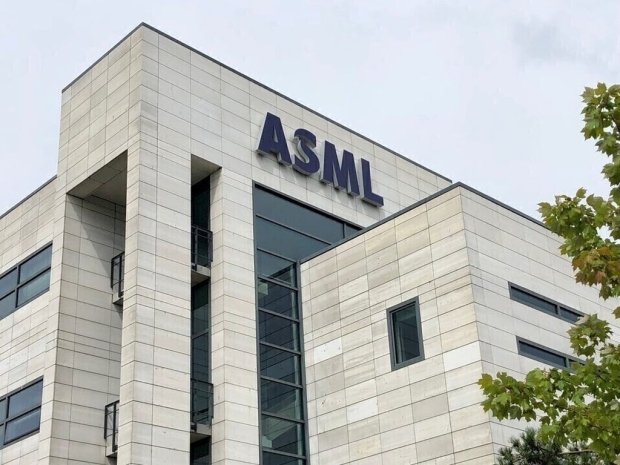Sales for the second quarter jumped 23 per cent to €7.7 billion, edging past analyst forecasts. Net bookings hit €5.5 billion, comfortably ahead of the €4.4 billion expected by Visible Alpha’s number-crunchers.
The boom in AI chips from Nvidia has been fuelling demand at ASML’s largest customer, TSMC, for the past two years. That’s kept the lithography machines rolling out the door.
But ASML’s outlook for the third quarter fell short of what the cocaine nose jobs of Wall Street wanted to see. The company is guiding for €7.4 billion to €7.9 billion in sales, missing the €8.2 billion forecast.
Chief executive Christophe Fouquet said he “cannot confirm” whether the firm will even grow next year, despite being one of Europe’s tech heavyweights.
“The level of uncertainty is increasing, mostly due to macroeconomic and geopolitical considerations. And that includes, of course, tariffs. Therefore, while we still prepare for growth in 2026, we cannot confirm it at this stage,” Fouquet said.
Investors didn’t take kindly to the hedging. ASML shares dropped six per cent in early trading. Analysts had been banking on about seven per cent revenue growth in 2026, hitting €34.7 billion, according to Visible Alpha.
It’s been a rough year for the stock, which has shed more than 20 per cent of its value. Spending cuts by chipmakers like Intel and Samsung have rattled nerves further, while Trump’s tariffs add more question marks.
Still, there was a glimmer of relief when Nvidia and AMD were given the nod to resume shipping some AI processors to Chinese customers. ASML expects China to make up roughly a quarter of its revenue this year, so the decision offers some breathing room.
Tariffs could still bite, affecting shipments of complete machines or components heading to the US, as well as parts sourced from America for use in Europe. But for now, the pain hasn’t been as bad as feared.
Finance chief Roger Dassen said: “Actually, the tariffs panned out to be a bit less negative than we anticipated.” One-off cost savings and extra revenue from upgrading customers’ existing kit also padded the quarterly numbers.
Despite strong AI-fuelled demand, ASML’s future looks clouded by politics and unpredictable chip industry spending.




